Enriching Musical Experiences
Music technology engagement for adults with intellectual and developmental disabilities
In October of 2014, 4-VA awarded Dr. David Stringham a grant called Music Technology Engagement for Adults with Intellectual and Developmental Disabilities to collaborate with Dr. Paul Ackerman of JMU, Dr. Kelly Parkes (then of VT; currently at Teachers College Columbia University), The Arc of Harrisonburg and Rockingham, and two JMU undergraduate students. The project studied particular forms of musical engagement with adults with intellectual and developmental disabilities (I/DD) with the intention that future investigations could expand to other forms of music making and a variety of other populations.
Because there is a lack of research examining music achievement of students with special needs—particularly adult learners—this research sought to better understand possibilities for music engagement among adults with I/DD.
Student teacher-researchers led weekly music sessions for approximately 15 adults with I/DD where they listened to, performed, created, and responded to music. Since some people find acoustic instruments such as pianos, guitars, and drums challenging, the team also used five iPads that offered simple, user-friendly musical applications.
The project focused on the following research questions:
- What type(s) of music achievement can be documented among adults with I/DD?
- What are strengths and weaknesses of the iPad as a tool for music engagement among adults with I/DD?
- What type(s) of development can be observed among pre-service music educators who teach music to adults with I/DD?
Dr. David Stringham
Associate Professor of Music
Coordinator, Music and Human Services Minor
Dr. Paul Ackerman
Former music therapist
JMU affiliate
Dr. Kelly Parkes
Associate Professor of Music & Music Education
Grant Info
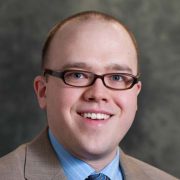
Part of being human is being musical. A variety of studies involving young children suggest we are born musicians. Unfortunately, many persons are not afforded opportunities to develop their musicianship throughout their lifespan. This project offers a population not typically served a chance to develop musical skills (e.g., listening, performing, creating), and provides our profession with another example of the type of work that a music educator might undertake in her or his career.
Music education is often thought of as teaching K-12 students to perform notated music in a band, choir, or orchestra, or teaching elementary school children in a general music classroom. I hope that this project helps expand conceptions of music education to include varied populations (in this case, adults with intellectual and developmental disabilities), tools (here, iPads, chimes, and other music instruments), and skills (in our project, listening to, performing, and creating music). This study provides students with a concrete example of another type of teaching they might explore as they consider what kind of music educator they want to be, as well as practical insights that can be useful for their development as teachers, regardless of population(s) with which they choose to work.
Conferences
- K.A. Parkes and D.A. Stringham. Spoken Paper and Poster: “Assessing Music Learning Among Adult Music Learners with Special Needs”. The Sixth International Symposium on Assessment in Music Education. Birmingham, UK. April 18-21, 2017.
- K.A. Parkes and D.A. Stringham. Spoken paper: “Pre-Service Music Educators’ Experiences Teaching Adults with Intellectual and Developmental Disabilities Using Technology”. The 10th International Conference for Research in Music Education. Bath, UK. April 24-27, 2017.
- D.A. Stringham, K.A. Parkes, & S.E. Hall. Primary Presentation Session: “Teaching Music to Adults with Intellectual and Developmental Disabilities: How Music Teacher Educators Can Learn From One PreService Music Teacher’s Experiences.” Society for Music Teacher Education Symposium. Minneapolis, MN. September 7-9, 2017.
Publication
- Parkes, Kelly A. and Stringham, David A. (in press). “Assessing Music Learning Among Adult Music Learners with Special Needs”. Selected Papers from the 6th International Symposium on Assessment in Music Education. Chicago: GIA Publications, Inc.
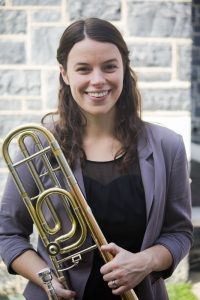 Interview featuring
Interview featuring
Shelby Hall
Music Education, Class of 2017
Shelby graduated from JMU in May of 2017 with a degree in music education and a minor in music and human services. She taught music to people with disabilities at The Arc of Harrisonburg and Rockingham through Dr. Stringham’s project and shared her experience with 4-VA.
4-VA: What was your role in the project?
Shelby Hall: I led musical experiences for people with intellectual and developmental disabilities. I taught one-on-one sessions using iPads, and I also taught group music sessions using a variety of resources. Hand chimes played a large part in the group sessions, and our group performed Christmas tunes at the Virginia Mennonite Retirement Community this past December.
4-VA: What was the most rewarding part of participating in the project?
Shelby Hall: The relationships I formed with the people at The Arc made this project incredible. Every person there had different strengths and gifts, and it was wonderful to see them come through while participating in music. I volunteered at The Arc for about 2 years. As schedules changed, different people would come to music every semester. But there were a few who stuck with it through the 2 years, and those friendships are priceless. My last semester there, while we transitioned to a group music session, we had days where 15 or 16 people came to the sessions. It was incredible to see the number of participants grow from 6 to 16.
I also value the small but sweet moments I had with them during our music sessions. I’ll never forget when one person sang harmony with a recording of The Beach Boys during a one-on-one session. I’ll also never forget when another came to music for the first time after months of me asking. Another person would teach me a new word in sign language every time I came to The Arc, using her hands and a book that she constantly carried. Those sweet moments contributed to the growth of our relationships, and I will always be grateful for those moments.
4-VA: How do you perceive this project has impacted the adults with I/DD?
Shelby Hall: Everyone in the music room together had to work together to accomplish one goal. We developed skills pertaining to working as a team. While we were all working on skills such as playing together, singing together, and staying on beat, some had other skills to practice, such as looking up and staying focused on the task at hand. Performing in front of a large group of people sparked confidence, and I’m sure they enjoyed creating something (a musical experience) for others.
4-VA: How did the project impact your education and your future career?
Shelby Hall: Unfortunately, there are not many full time jobs to teach music to adults with disabilities. However I would like to do something similar to this in the future. As of now, the plan is to find a job teaching music in a public school, and then start a program similar to this experience once a week after school. There are not many opportunities for adults with disabilities, and that needs to change. Community music allows people with disabilities to experience the social interactions they desperately need.
In the fall of 2017, Shelby Hall was hired as the new music teacher at Maiden Choice School in Baltimore, Maryland where she specializes in working with children 3-21 years of age who have cognitive disabilities.


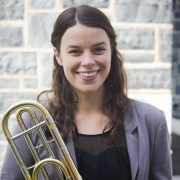
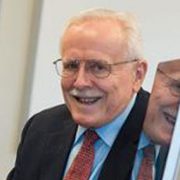
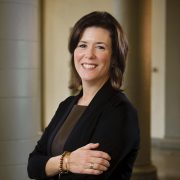
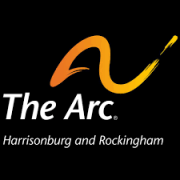
 Interview featuring
Interview featuring
